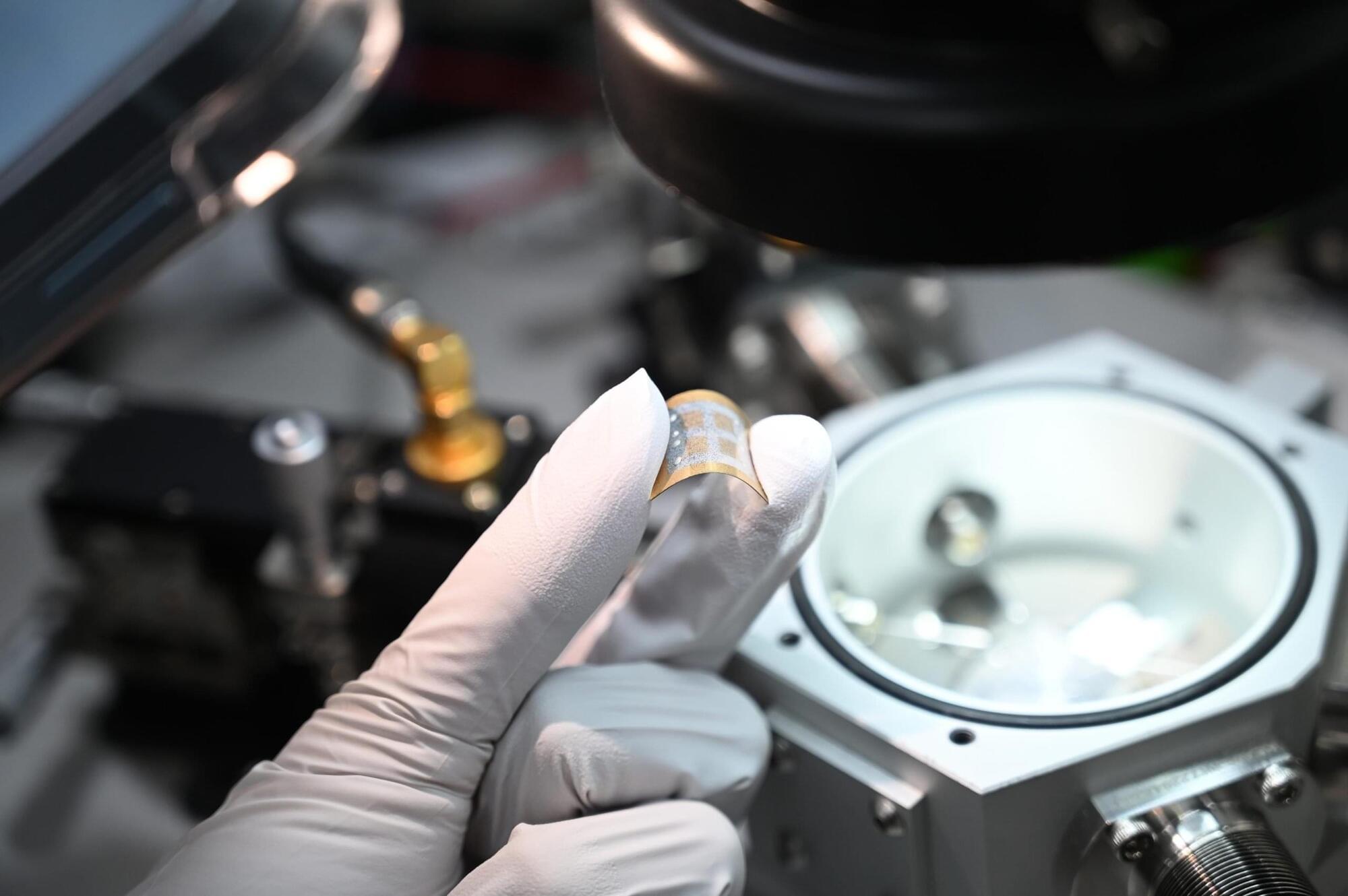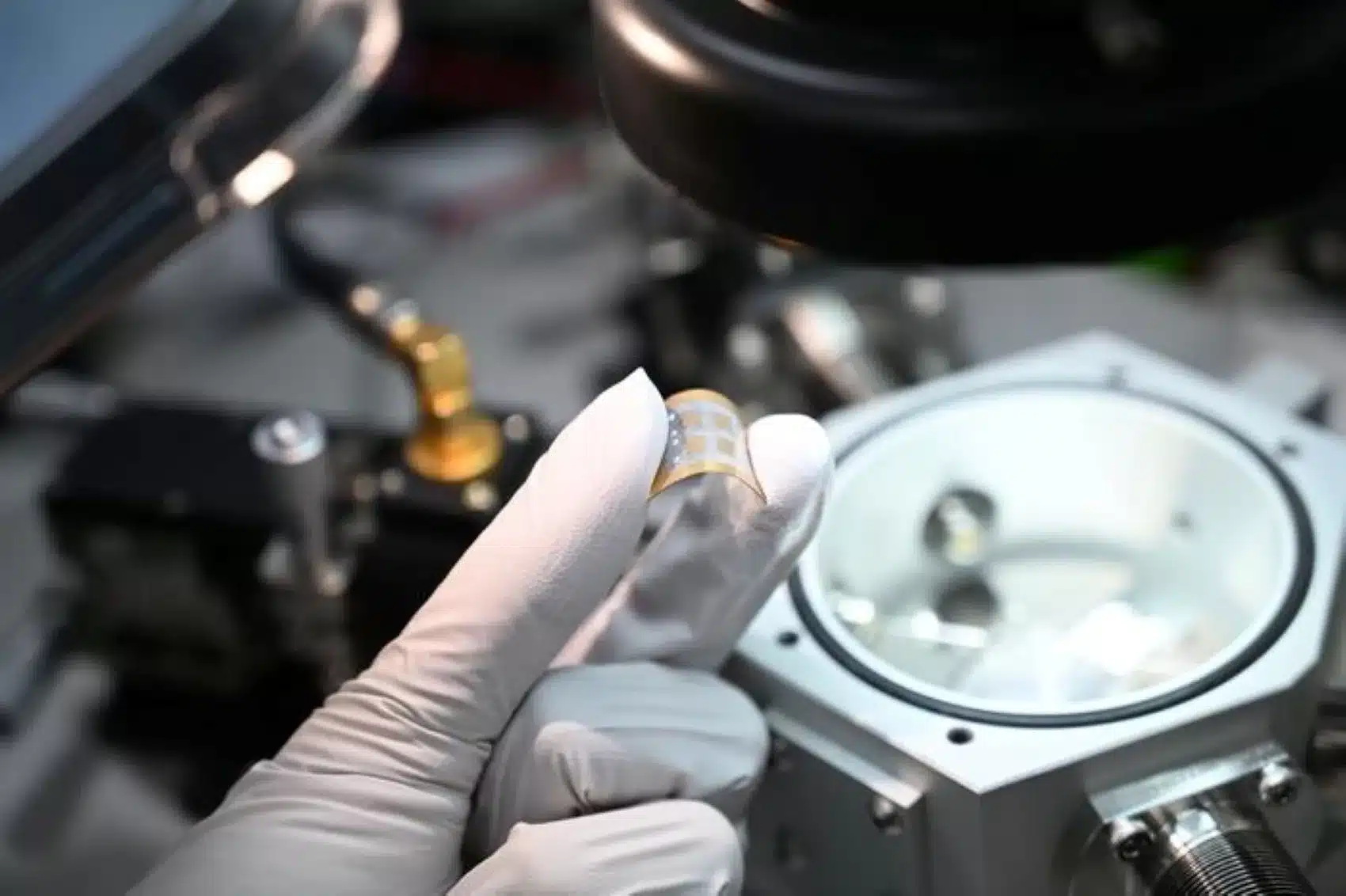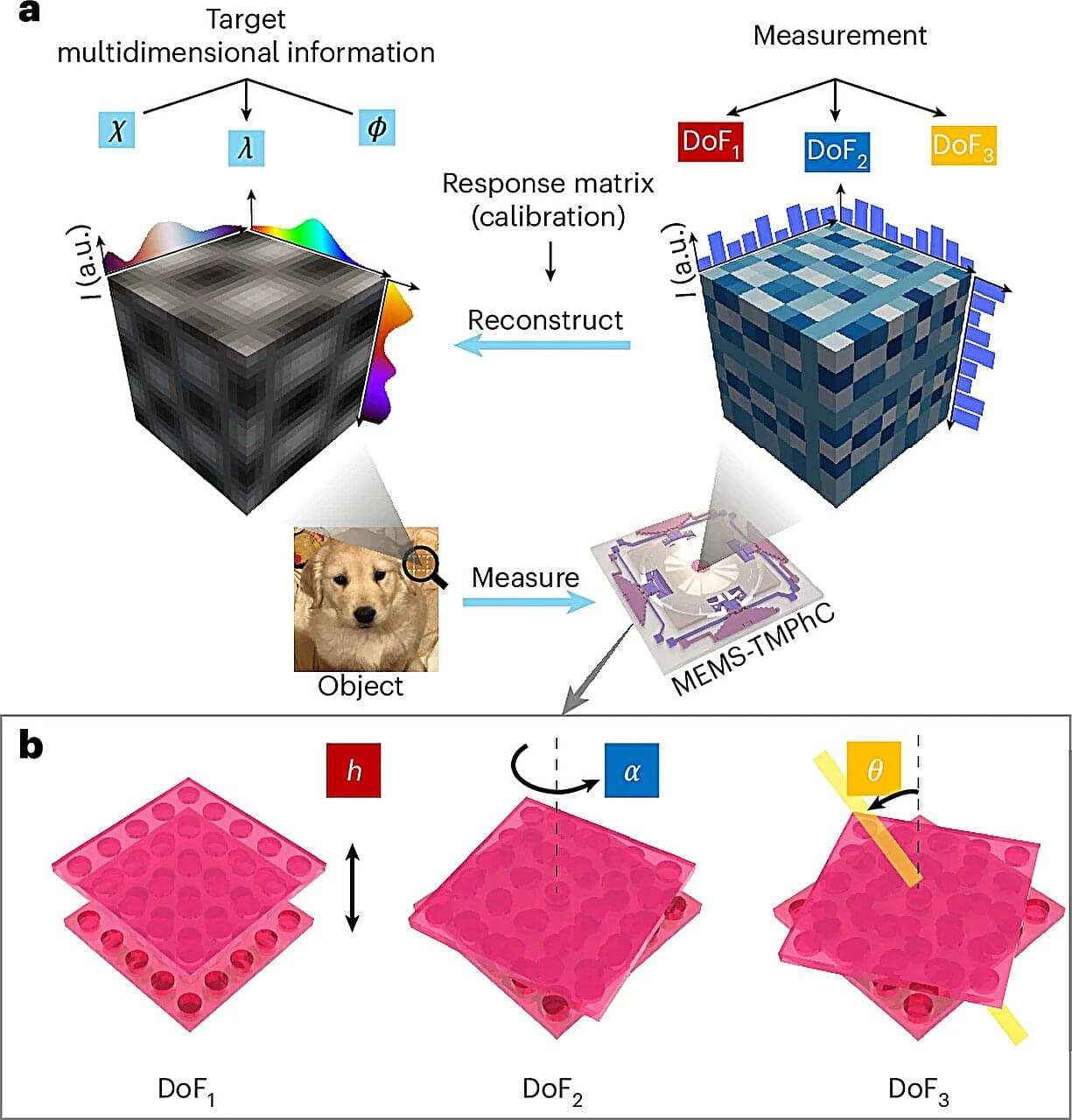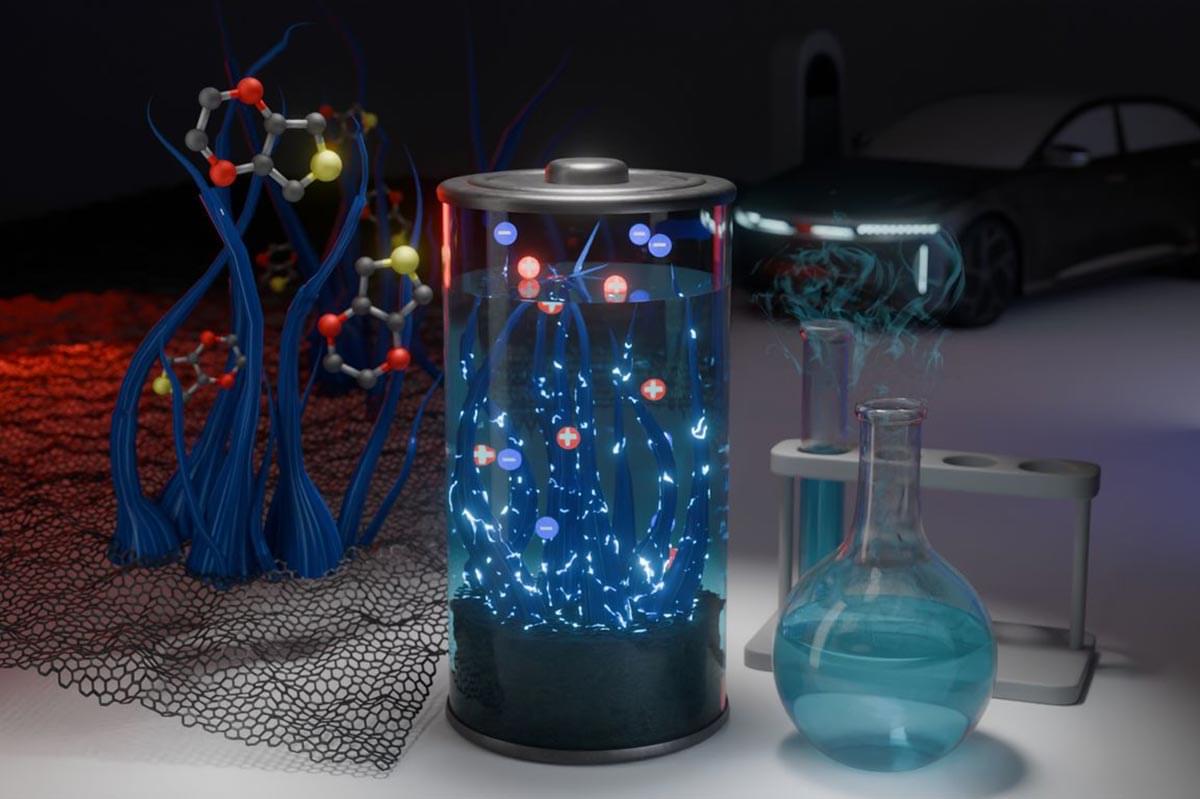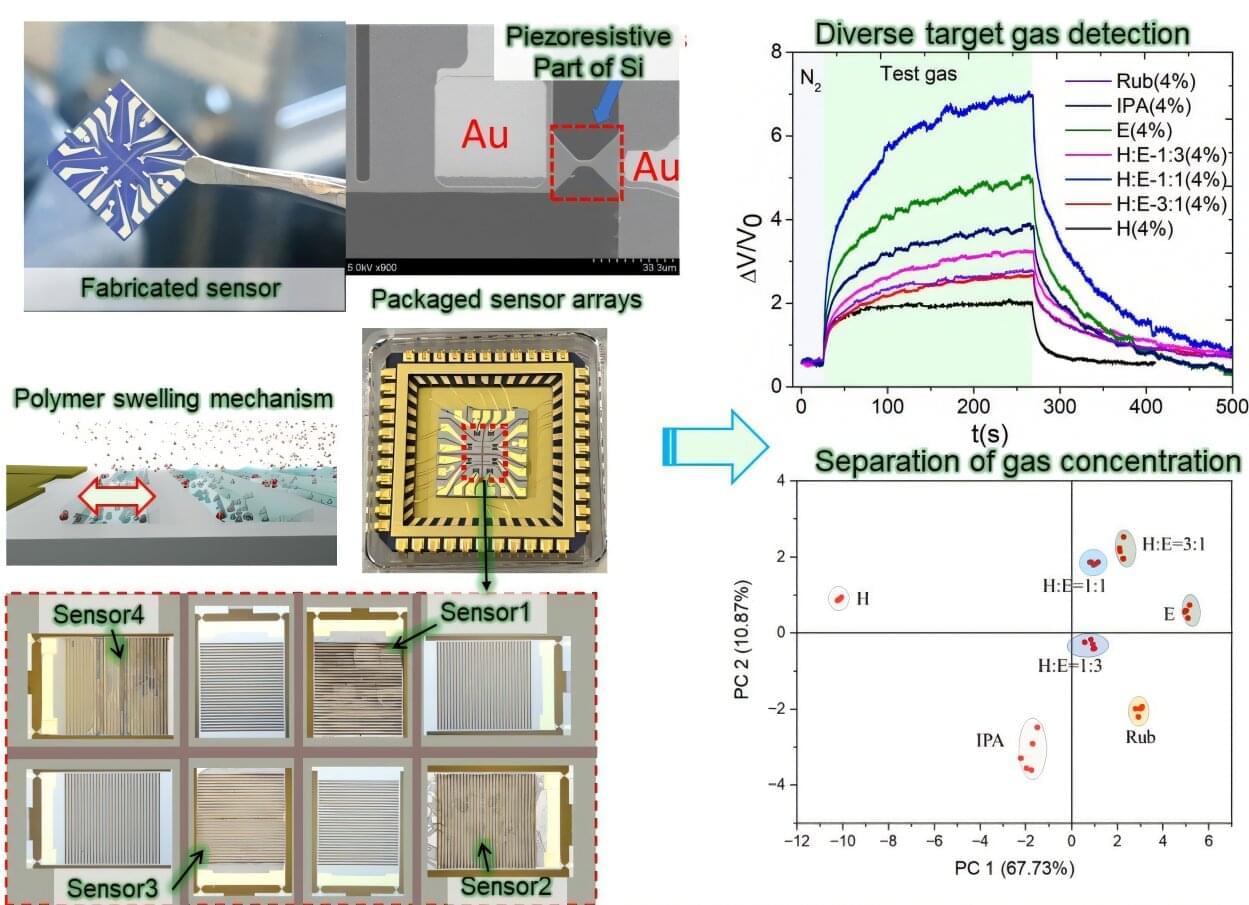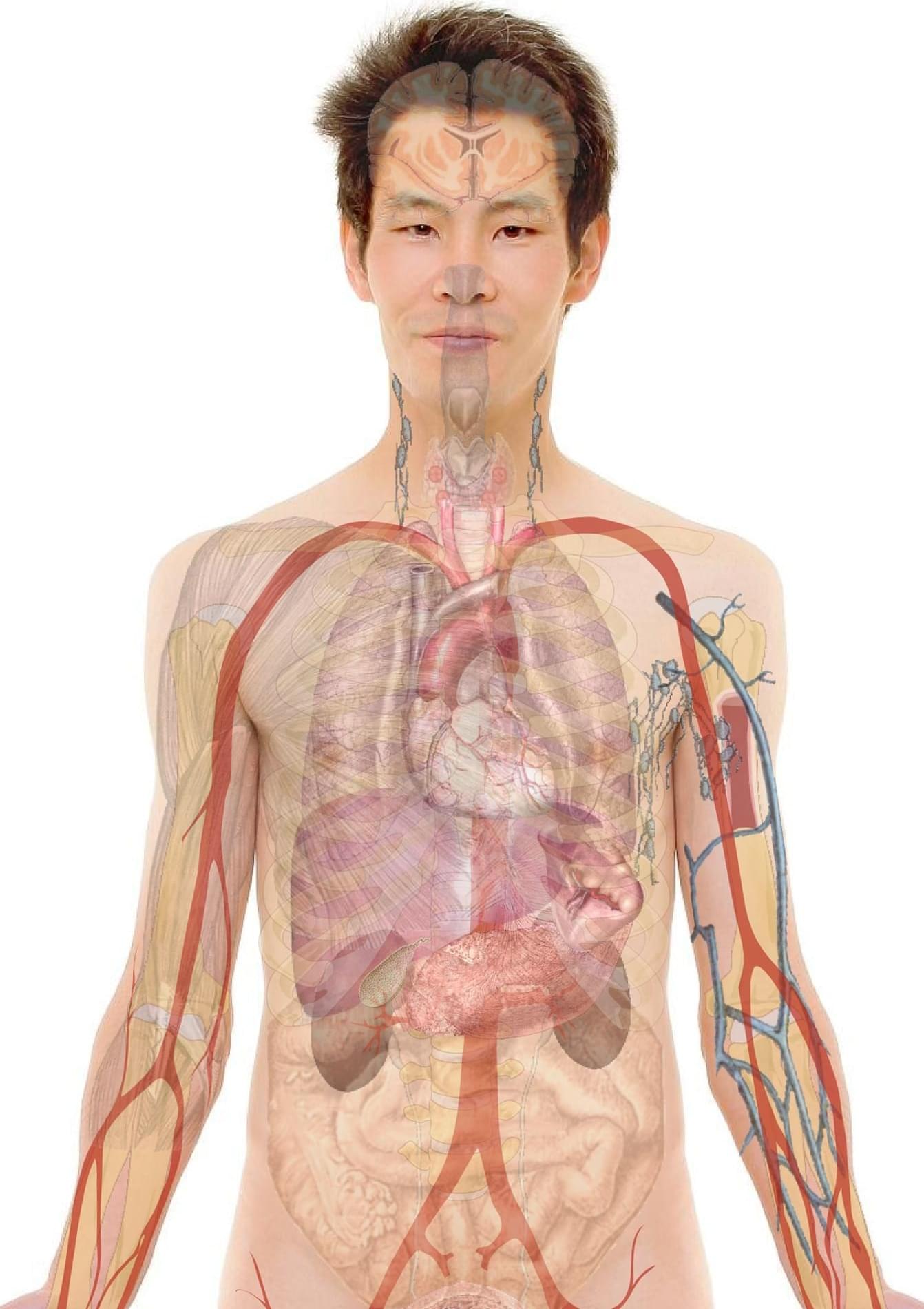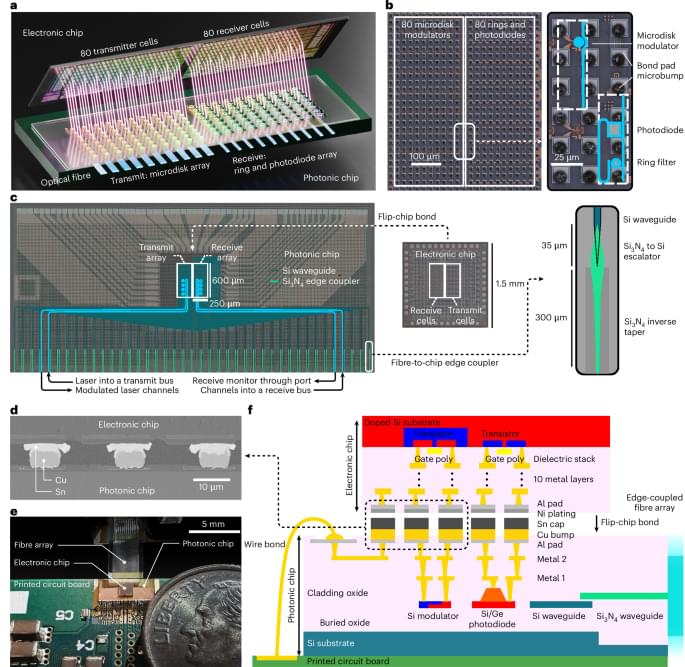Twisted moiré photonic crystals—an advanced type of optical metamaterial—have shown enormous potential in the race to engineer smaller, more capable and more powerful optical systems. How do they work?
Imagine you have two pieces of fabric with regular patterns, like stripes or checkers. When you lay the two pieces of fabric directly on top of each other, you can see each pattern clearly. But if you slightly shift one piece of fabric or twist it, new patterns that weren’t in either of the original fabrics emerge.
In twisted moiré photonic crystals, how the layers twist and overlap can change how the material interacts with light. By changing the twist angle and the spacing between layers, these materials can be fine-tuned to control and manipulate different aspects of light simultaneously—meaning the multiple optical components typically needed to simultaneously measure light’s phase, polarization, and wavelength could be replaced with one device.
